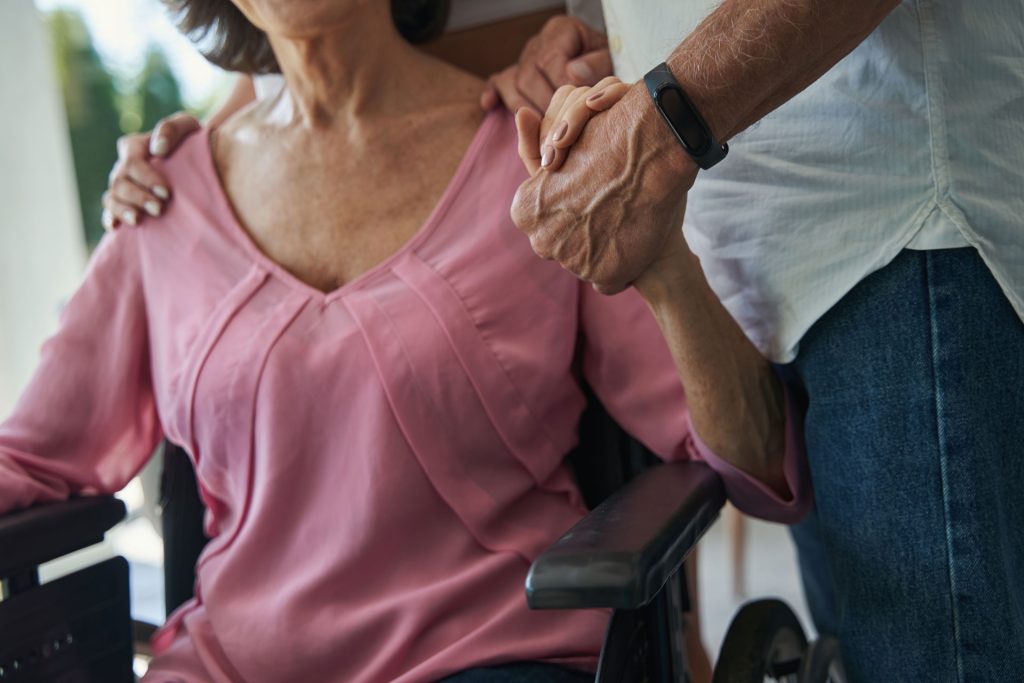Life with Parkinson’s Disease poses unique challenges, as each individual’s experience with the condition can vary significantly. Understanding the symptoms and progression of Parkinson’s is crucial for managing its impact effectively.
This comprehensive exploration aims to equip individuals diagnosed with Parkinson’s Disease with valuable insights into the condition’s nuances. By shedding light on the intricacies of symptoms, the course of the disease, and the latest management techniques, we strive to empower readers to take proactive steps in their healthcare journey.
Whether you are newly diagnosed or have been living with Parkinson’s for some time, this resource is designed to support you with the knowledge needed to make informed decisions and enhance your quality of life.
Understanding Parkinson’s Disease: An Overview
Parkinson’s Disease (PD) is a complex neurodegenerative disorder primarily impacting movement, although it also presents with non-motor symptoms. It occurs when dopamine-producing neurons in the brain’s substantia nigra deteriorate, leading to dopamine deficiency—a critical neurotransmitter for coordinating movement.
The exact cause of PD remains unknown, but it is believed to result from a combination of genetic and environmental factors. Common symptoms include tremors, slowness of movement (bradykinesia), muscle rigidity, and balance difficulties. Non-motor symptoms, such as sleep disturbances, depression, and cognitive changes, are also prevalent and can significantly impact quality of life.
Understanding Parkinson’s Disease is fundamental for those diagnosed, as it allows for proactive and personalized management of symptoms. Comprehensive knowledge enables individuals to seek timely medical interventions, explore effective treatments like medications and therapies, and implement lifestyle adjustments that can alleviate symptoms.
By empowering themselves with information, people with Parkinson’s can play an active role in their care and make informed decisions that enhance their overall well-being. Awareness and education about the disease pave the way for improved life quality and help navigate the complexities associated with Parkinson’s Disease.
Related: Understanding Migraines: Symptoms, Triggers, and Treatment Options
Recognizing the Early Symptoms

Recognizing the early symptoms of Parkinson’s Disease is crucial for timely diagnosis and management. Here are key signs to watch for:
- Tremor: A slight shaking or tremor, often in the fingers, thumb, hand, or chin, is a common early indicator.
- Small Handwriting: Known as micrographia, you might notice your handwriting becoming smaller and more crowded.
- Loss of Smell: Difficulty smelling certain foods such as bananas or dill pickles could be an early symptom.
- Trouble Sleeping: Acting out dreams or thrashing in bed during sleep might signal Parkinson’s.
- Difficulty Moving or Walking: Stiffness in the body, arms, or legs, or a noticeable change in your walking pattern, such as reduced arm swing, can be early signs.
- Constipation: Persistent difficulty with bowel movements may also be indicative of Parkinson’s.
- Soft or Low Voice: If your voice becomes softer or you sound hoarse without a clear reason, it could be related to Parkinson’s.
- Masked Face: A serious, depressed, or angry look on your face, even when not in a bad mood, is often referred to as facial masking.
- Dizziness or Fainting: Frequent dizziness upon standing can be linked to Parkinson’s due to low blood pressure.
- Stooping or Hunching Over: A noticeable change in posture, such as stooping or slouching, might be an early sign.
Early recognition of these symptoms can lead to more effective management and treatment strategies, helping to maintain quality of life. If you notice these signs, consulting a healthcare professional is recommended for further evaluation and guidance.
Related: Effective Strategies for Head Pain Treatment in Lutz, Florida
Progression of Parkinson’s Disease
Understanding the progression of Parkinson’s Disease (PD) is crucial for individuals and caregivers to manage symptoms effectively. Here’s a breakdown of the typical stages:
- Stage One: Symptoms are mild and typically do not interfere with daily activities. Tremors and movement symptoms usually affect one side of the body. Changes in posture, walking, and facial expressions may be noticeable.
- Stage Two: Symptoms start worsening, affecting both sides of the body. Tremor, rigidity, and movement difficulties become more apparent. Daily tasks may become more challenging and time-consuming.
- Stage Three: This mid-stage is marked by balance issues and falls. While motor symptoms continue to worsen, individuals may still maintain independence in their daily activities, though with some restrictions.
- Stage Four: Symptoms are severe and significantly disabling. While walking and standing are possible, assistance may be needed for safety. Daily living activities require considerable help.
- Stage Five: The most advanced stage, characterized by severe mobility issues. Individuals may be bedridden or require a wheelchair unless assisted. Around-the-clock care is necessary.
Understanding these stages can help in anticipating changes and planning for necessary adjustments in care and treatment. Being informed allows for proactive management, enhancing quality of life and ensuring appropriate support throughout the disease’s progression.
Related: Cluster Headaches: Symptoms, Triggers, and Treatment Approaches
Advanced Symptoms and Complications

As Parkinson’s Disease progresses to its advanced stages, individuals may face a range of challenging symptoms and complications. Recognizing these can aid in effective management:
- Motor Fluctuations: Patients experience varied periods of mobility, alternating between ‘on’ periods of good control and ‘off’ periods of increased symptoms.
- Severe Swallowing Difficulties: This can lead to choking risks and nutritional deficiencies, necessitating interventions like speech therapy.
- Recurrent Falls: Balance issues increase fall risk, demanding home safety adjustments and potential use of assistive devices.
- Dementia: Cognitive decline affects memory, attention, and problem-solving, requiring comprehensive care strategies.
- Neuropsychiatric Symptoms: Depression, anxiety, and hallucinations are common, impacting quality of life and needing specialized treatment.
- Severe Constipation: A frequent issue that can be exacerbated by decreased mobility, requiring dietary changes and medical interventions.
- Urinary Dysfunction: Increased frequency and urgency can lead to incontinence, impacting daily life.
Understanding these symptoms is crucial for timely intervention and management. Proactive measures, including therapy and lifestyle adaptations, can significantly enhance the quality of life for individuals with advanced Parkinson’s Disease. Early recognition and appropriate care are vital to addressing these challenges effectively.
Related: Restless Legs Syndrome (RLS): Causes, Symptoms, and Treatment Options
Diagnostic Processes and Criteria
Accurate diagnosis of Parkinson’s Disease (PD) is crucial for effective management and treatment. Here are the key diagnostic processes and criteria:
- Medical History and Physical Examination: A neurologist reviews the patient’s medical history and conducts a thorough physical examination to identify symptoms such as tremors, rigidity, and bradykinesia.
- Neurological Examination: This involves assessing muscle tone, agility, gait, and balance to detect abnormalities indicative of PD.
- DaTscan Imaging: Although not definitive for PD, this imaging technique helps visualize the brain’s dopamine system, aiding in distinguishing PD from similar disorders.
- Symptom Evaluation: Key symptoms include resting tremor, slowness of movement, muscle stiffness, and postural instability. These are often reported by patients or observed by their families.
- Medication Review: Doctors assess current and past medications to rule out drug-induced parkinsonism, which can mimic PD symptoms.
- Prodromal Symptoms: Early signs such as loss of smell, REM sleep disturbances, and persistent constipation are considered for early intervention strategies.
Accurate diagnosis is pivotal, as it informs treatment plans and enhances the quality of life for those affected by Parkinson’s Disease. Early recognition and precise identification ensure that patients receive the most appropriate care and support.
Comprehensive Management Techniques
Effective management of Parkinson’s Disease involves a multidisciplinary approach tailored to each individual’s needs. Here are comprehensive management techniques to consider:
- Medication Management: Levodopa remains the cornerstone for symptomatic relief, often combined with carbidopa to enhance efficacy. Dopamine agonists and MAO-B inhibitors can also be used to manage motor symptoms.
- Surgical Options: For advanced cases, deep brain stimulation (DBS) can provide significant relief from motor symptoms, offering an option when medications are insufficient.
- Physical Therapy: Regular exercise and physical therapy are crucial for maintaining mobility and flexibility, which can slow disease progression and improve quality of life.
- Speech and Occupational Therapy: These therapies help address communication difficulties and assist in adapting daily tasks to maintain independence.
- Nutritional Support: Dietary adjustments, including adequate fiber intake, can alleviate common issues such as constipation. A balanced diet supports overall health and well-being.
- Psychiatric Care: Management of non-motor symptoms like depression and anxiety is essential, often requiring a combination of medications and counseling.
For personalized care plans, contact the Center for Neurology, where experts like Dr. Kavita Kalidas in Luz, Florida, provide tailored treatment strategies to enhance your quality of life with Parkinson’s Disease.

